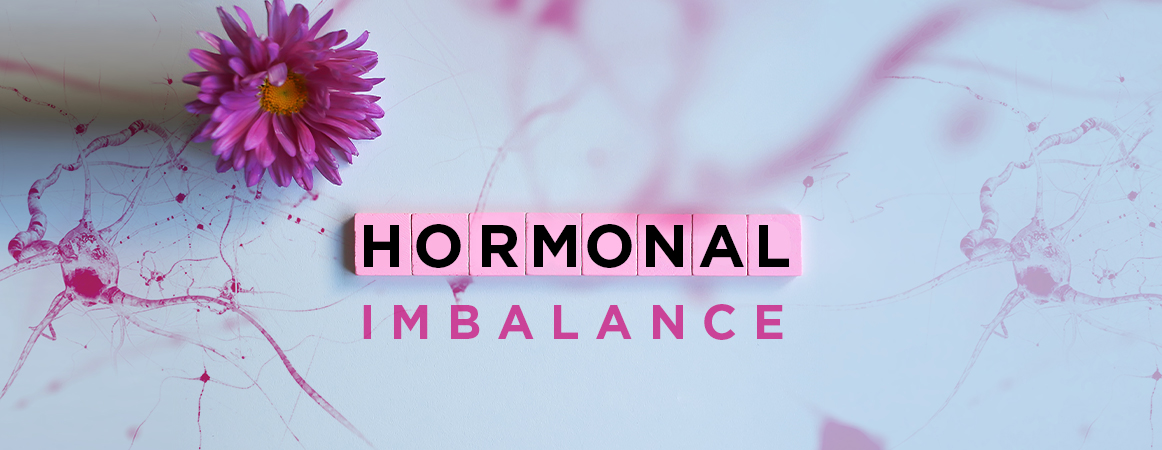Hormonal Imbalance: Causes, Symptoms, and Treatment
Hormones are chemical produced by glands in your body. They help control many of your body’s major processes, and regulate many important body functions, including:
- metabolism
- reproductive cycles and sexual function
- growth and development
- digestion
- blood sugar
- blood pressure
- mood
- stress levels
What is a hormonal imbalance?
Hormones play a pivotal role in your health and wellbeing. Too much or too little of a certain hormone will cause hormonal imbalance. They can impact your physical and mental health, with a range of possible signs or symptoms that indicate a hormonal imbalance. Depending on the hormones or glands that are disrupted, you can start to notice very different health-related issues.
hormonal imbalance Causes
Common causes of hormonal imbalance include:
- hormone therapy
- medications
- cancer treatments such as chemotherapy
- tumors, whether cancerous or benign
- pituitary tumors
- eating disorders
- stress
- injury or trauma
Causes Hormonal Imbalance in women
Hormonal imbalance in women is often related to reproductive hormones. Common causes include:
- menopause
- premature menopause
- pregnancy
- breastfeeding
- PCOS
- birth control pills
Hormonal Imbalance Symptoms in females
- mood swings
- constipation or diarrhea
- irregular menstrual cycle
- infertility
- abdomen pain during menstruation
- low sex drive
- insomnia
- unexplained weight gain or weight loss
- brittle bones
- excessive hair growth
- rashes on the skin
Hormonal Imbalance Symptoms in Males
When men have low testosterone levels, their symptoms will typically include:
- decrease in sex drive
- erectile dysfunction (ED)
- loss of muscle mass
- thinning hair and reduced hair growth
- tenderness in the area of the chest
Conditions caused by hormonal imbalances
Multiple health conditions are caused by hormone issues. Some conditions require treatment, but some are temporary and will eventually go away on their own. Some of the most common hormone-related conditions are:
Irregular menstruation (periods):
The menstrual cycle is regulated by many hormones. For this reason, an imbalance in any of these hormones can cause irregular periods. There are specific circumstances that lead to menstrual irregularities, including polycystic ovary syndrome (PCOS) and amenorrhea.
Infertility:
Hormonal imbalances are the leading cause of female infertility. Hormone-related conditions such as PCOS and ovulation problems can be the cause of infertility. D
Acne:
Acne is primarily caused by clogged skin pores. Many factors contribute to acne, one of the most significant is hormones during puberty. Hormones cause oil glands to produce more sebum, which eventually builds up and causes clogged pores.
Hormonal acne (adult acne):
Acne develops when hormones disrupt the balance of oil production on your skin. This can happen during pregnancy, menopause, and for people who are taking testosterone therapy.
Obesity:
The hormones in your body can affect how it tells you to eat, and how it uses energy. If some hormones are out of balance, your weight will start to change. For example, too much cortisol and lower thyroid hormones can lead to obesity.
Hormonal Belly Fat:
If you feel weight gain around the abdomen, you may be experiencing hormonal changes. Consult a doctor to find out how to correct the imbalance. You can now consult a doctor via MMI teleclinic at Memon Medical Institute Hospital (MMI) from the comfort of your home. They may prescribe medication or suggest lifestyle modifications, depending on your condition.
Hormonal Imbalance Treatment
A hormonal imbalance can be caused by one or more underlying factors, including lifestyle and medical conditions. However, it is more likely to be temporary or fixable with a change in medication or managing stress. In other cases, your doctor might recommend a blood test, pelvic exam, and ultrasound.
Lifestyle changes may also make an impact, such as:
- maintaining a moderate body weight
- eating a nutritious and balanced diet
- exercising regularly
- practicing good personal hygiene
- reducing and managing stress
While hormone levels are irregular for many reasons, there are other factors too that can cause fluctuations and imbalances. Some of the most common causes include:
- Stress
- Certain medications
- Steroid use
Take an advise from an expert at Memon Medical Institute.


